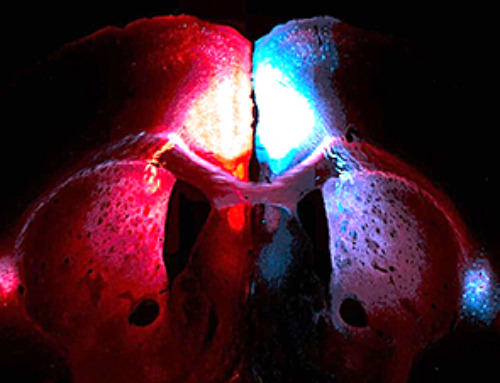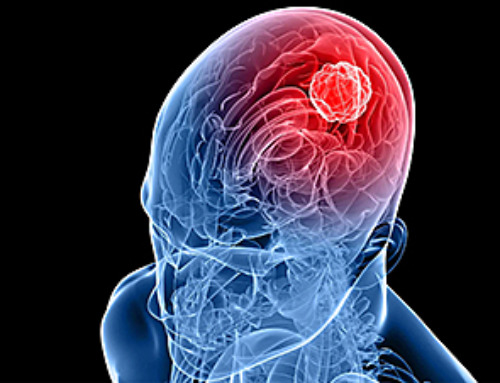Researchers at Aarhus University have discovered a method to identify Alzheimer's disease before it progresses to dementia, potentially opening up new avenues for treatment.
A groundbreaking study could pave the way for early detection and possibly offer a route to decelerate the advancement of Alzheimer's disease.
Researchers have discovered a special receptor on immune cells that can effectively bind and neutralize harmful "beta proteins", which are strongly associated with the disease.
"The method allows us to monitor disease-related changes at an earlier stage than is possible with traditional methods. And this is important when it comes to Alzheimer's because it's known to develop over a very long period of time. This is also why treatment is typically first started when the disease is already so advanced that it may be almost impossible to slow down," explains Kristian Juul-Madsen, postdoc at the Department of Biomedicine, Aarhus University, and one of the researchers behind the study.
"If we can activate the body's own immune system at an earlier stage of the disease, it might be possible to slow down its progression before it develops into full-blown dementia," he adds.
A great leap for diagnostics
The study suggests that the activity of the peripheral immune system may play a crucial role in the body's defense against Alzheimer's by preventing the accumulation of harmful proteins in the brain.
The new method uses an advanced type of blood test analysis that is particularly sensitive to the early stages of the disease. This is a major breakthrough compared to current diagnostic tools, such as PET scans, which can usually only spot the disease once it is at an advanced stage.
"Our hope is that these discoveries can pave the way for new strategies in the fight against Alzheimer's. By understanding how the immune system can be mobilized against early stages of the disease, we might be able to develop therapies that can intervene much earlier than current treatment options," says Kristian Juul-Madsen.
International attention
The results of the study have received international attention, and the research team behind the discovery is already planning follow-up projects to test the new method in a larger patient group.
The research team is also trying to understand the exact mechanisms behind the immune system's ability to fight the early signs of Alzheimer's, which could be key to developing even more effective treatments in the future.
"The biggest challenge in transferring our research to the clinic is that it takes a long time to test the beneficial effect of activating the immune system, as Alzheimer's is known to develop very slowly and you need to intervene at a very early stage," explains Kristian Juul-Madsen.
While the study is promising for the fight against Alzheimer's, it also raises some ethical concerns. After all, what will an early diagnosis of Alzheimer's mean for patients and their families when there is currently no effective treatment for the disease?
"Of course, it's sad if you can identify the development of a dangerous disease like Alzheimer's without being able to do anything to stop it. However, this is something we need to do in order to develop a treatment in the future," says Kristian Juul-Madsen.
Reference: "Amyloid-β aggregates activate peripheral monocytes in mild cognitive impairment" by Kristian Juul-Madsen, Peter Parbo, Rola Ismail, Peter L. Ovesen, Vanessa Schmidt, Lasse S. Madsen, Jacob Thyrsted, Sarah Gierl, Mihaela Breum, Agnete Larsen, Morten N. Andersen, Marina Romero-Ramos, Christian K. Holm, Gregers R. Andersen, Huaying Zhao, Peter Schuck, Jens V. Nygaard, Duncan S. Sutherland, Simon F. Eskildsen, Thomas E. Willnow, David J. Brooks and Thomas Vorup-Jensen, 9 February 2024, Nature Communications.
DOI: 10.1038/s41467-024-45627-y
News
This Is Why the Same Virus Hits People So Differently
Scientists have mapped how genetics and life experiences leave lasting epigenetic marks on immune cells. The discovery helps explain why people respond so differently to the same infections and could lead to more personalized [...]
Rejuvenating neurons restores learning and memory in mice
EPFL scientists report that briefly switching on three “reprogramming” genes in a small set of memory-trace neurons restored memory in aged mice and in mouse models of Alzheimer’s disease to level of healthy young [...]
New book from Nanoappsmedical Inc. – Global Health Care Equivalency
A new book by Frank Boehm, NanoappsMedical Inc. Founder. This groundbreaking volume explores the vision of a Global Health Care Equivalency (GHCE) system powered by artificial intelligence and quantum computing technologies, operating on secure [...]
New Molecule Blocks Deadliest Brain Cancer at Its Genetic Root
Researchers have identified a molecule that disrupts a critical gene in glioblastoma. Scientists at the UVA Comprehensive Cancer Center say they have found a small molecule that can shut down a gene tied to glioblastoma, a [...]
Scientists Finally Solve a 30-Year-Old Cancer Mystery Hidden in Rye Pollen
Nearly 30 years after rye pollen molecules were shown to slow tumor growth in animals, scientists have finally determined their exact three-dimensional structures. Nearly 30 years ago, researchers noticed something surprising in rye pollen: [...]
NanoMedical Brain/Cloud Interface – Explorations and Implications. A new book from Frank Boehm
New book from Frank Boehm, NanoappsMedical Inc Founder: This book explores the future hypothetical possibility that the cerebral cortex of the human brain might be seamlessly, safely, and securely connected with the Cloud via [...]
How lipid nanoparticles carrying vaccines release their cargo
A study from FAU has shown that lipid nanoparticles restructure their membrane significantly after being absorbed into a cell and ending up in an acidic environment. Vaccines and other medicines are often packed in [...]
New book from NanoappsMedical Inc – Molecular Manufacturing: The Future of Nanomedicine
This book explores the revolutionary potential of atomically precise manufacturing technologies to transform global healthcare, as well as practically every other sector across society. This forward-thinking volume examines how envisaged Factory@Home systems might enable the cost-effective [...]
A Virus Designed in the Lab Could Help Defeat Antibiotic Resistance
Scientists can now design bacteria-killing viruses from DNA, opening a faster path to fighting superbugs. Bacteriophages have been used as treatments for bacterial infections for more than a century. Interest in these viruses is rising [...]
Sleep Deprivation Triggers a Strange Brain Cleanup
When you don’t sleep enough, your brain may clean itself at the exact moment you need it to think. Most people recognize the sensation. After a night of inadequate sleep, staying focused becomes harder [...]
Lab-grown corticospinal neurons offer new models for ALS and spinal injuries
Researchers have developed a way to grow a highly specialized subset of brain nerve cells that are involved in motor neuron disease and damaged in spinal injuries. Their study, published today in eLife as the final [...]
Urgent warning over deadly ‘brain swelling’ virus amid fears it could spread globally
Airports across Asia have been put on high alert after India confirmed two cases of the deadly Nipah virus in the state of West Bengal over the past month. Thailand, Nepal and Vietnam are among the [...]
This Vaccine Stops Bird Flu Before It Reaches the Lungs
A new nasal spray vaccine could stop bird flu at the door — blocking infection, reducing spread, and helping head off the next pandemic. Since first appearing in the United States in 2014, H5N1 [...]
These two viruses may become the next public health threats, scientists say
Two emerging pathogens with animal origins—influenza D virus and canine coronavirus—have so far been quietly flying under the radar, but researchers warn conditions are ripe for the viruses to spread more widely among humans. [...]
COVID-19 viral fragments shown to target and kill specific immune cells
COVID-19 viral fragments shown to target and kill specific immune cells in UCLA-led study Clues about extreme cases and omicron’s effects come from a cross-disciplinary international research team New research shows that after the [...]
Smaller Than a Grain of Salt: Engineers Create the World’s Tiniest Wireless Brain Implant
A salt-grain-sized neural implant can record and transmit brain activity wirelessly for extended periods. Researchers at Cornell University, working with collaborators, have created an extremely small neural implant that can sit on a grain of [...]





















